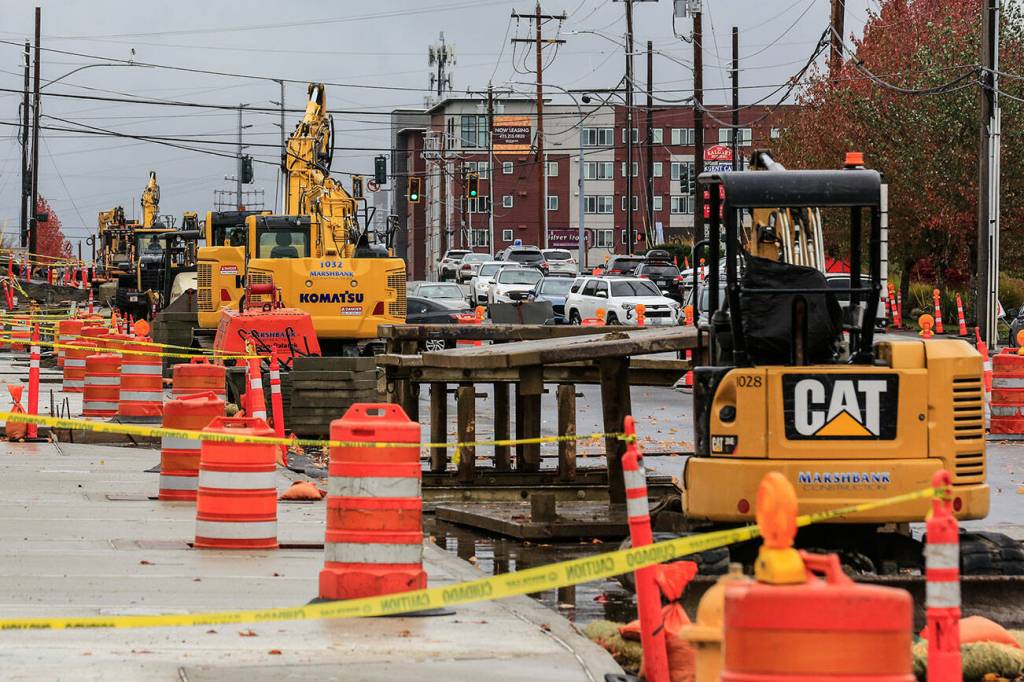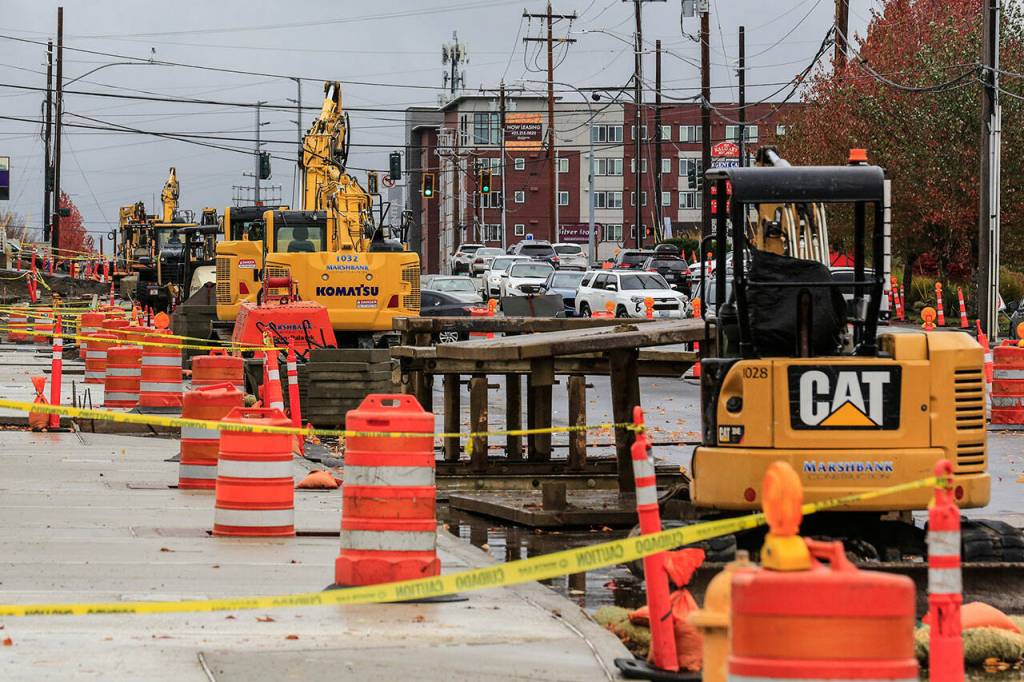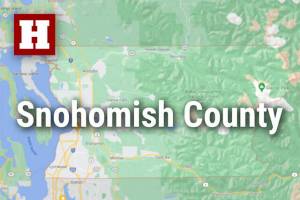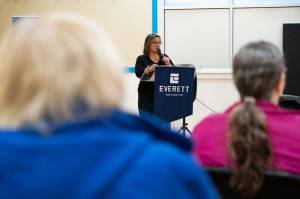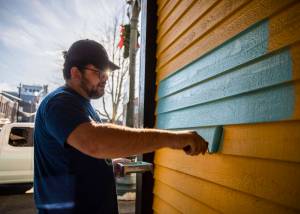Lynnwood council again scraps $40 car tab fees
Published 1:30 am Wednesday, October 26, 2022


LYNNWOOD — Once again the Lynnwood City Council voted to end $40 vehicle registration fees Monday night.
And once again, a mayoral veto is possible.
Council members Patrick Decker, George Hurst, Jim Smith and Shirley Sutton supported the ordinance that eliminates the fee Lynnwood uses to pay for work on roads and sidewalks.
Julieta Altamirano-Crosby and Shannon Sessions voted no.
Josh Binda abstained.
Almost a year ago, the council voted to scrap its car tab fee but then-Mayor Nicola Smith vetoed it.
Hurst, the council president, championed the ordinance last year and this spring, when action on it was postponed. His qualm is that Lynnwood residents don’t get to vote on the fee.
“I really don’t like the vehicle license fees because it was just council action,” Hurst said Monday.
Mayor Christine Frizzell, who last year voted as a council member to keep the car tab fee, could veto the ordinance within 10 days. The council would need five votes to override it.
Frizzell was considering “all options” after the council’s vote and as the city goes through its biennial budget presentations, assistant city administrator Julie Moore wrote in an email Tuesday.
Lynnwood collects money from vehicle registration (also called car tabs) and a 0.1% sales tax increase through a Transportation Benefit District (TBD). The registration fee is on top of the annual state fee and is decided by the council, which comprises the decision-making body of the Transportation Benefit District. Voters approved the sales tax increase for 10 years in 2016.
In 2020, the city collected $1.3 million in vehicle registration fees.
The city projected about $2.3 million in the next two-year budget from the fees, Lynnwood finance director Michelle Meyer wrote in a memo to the council. City staff estimated $13.5 million to $22.6 million each biennium for all of the maintenance, repair and replacement projects for Lynnwood’s roads, sidewalks and traffic signals, Meyer said.
Each year the city transfers $2 million from the general fund, which covers most of the city’s operations and staff, into its streets budget.
“We struggle just to come up with that $2 million for the 2023-24 biennium, so a cut to the TBD revenue would be a direct cut to streets, sidewalks and (Americans with Disabilities Act) work,” Meyer told the council.
Smith, who voted to end the fee last year as well, said his intent is not to cut spending from streets projects. Instead, the city can fill that revenue gap with general fund money, he said.
But city staff “have no plan” for how to make up the difference if the budget loses the car tab fee revenue, Meyer said.
Altamirano-Crosby switched her yes vote from last year to a no vote this time. She was convinced to keep the car tab revenue as well after hearing the community wanted investments in sidewalks and streets and seeing the “bad shape” of roads and sidewalks during a tour with the public works department, Altamirano-Crosby said.
“If we vote to eliminate this tax, it’s going to affect our budget, it’s going to affect our streets,” Altamirano-Crosby said.
Brock Howell, executive director of the Snohomish County Transportation Coalition (SnoTrac), asked the council to “maintain” its resources for road and sidewalk work.
“To lose the TBD could have a big impact on people with disabilities, low incomes and those wanting to age in place (in) a city that is aging faster than the rest of the state,” Howell said.
If the ordinance holds, it will take effect Jan. 1.
The council’s next meeting is at 6 p.m. Monday.
Ben Watanabe: 425-339-3037; bwatanabe@heraldnet.com; Twitter: @benwatanabe.

